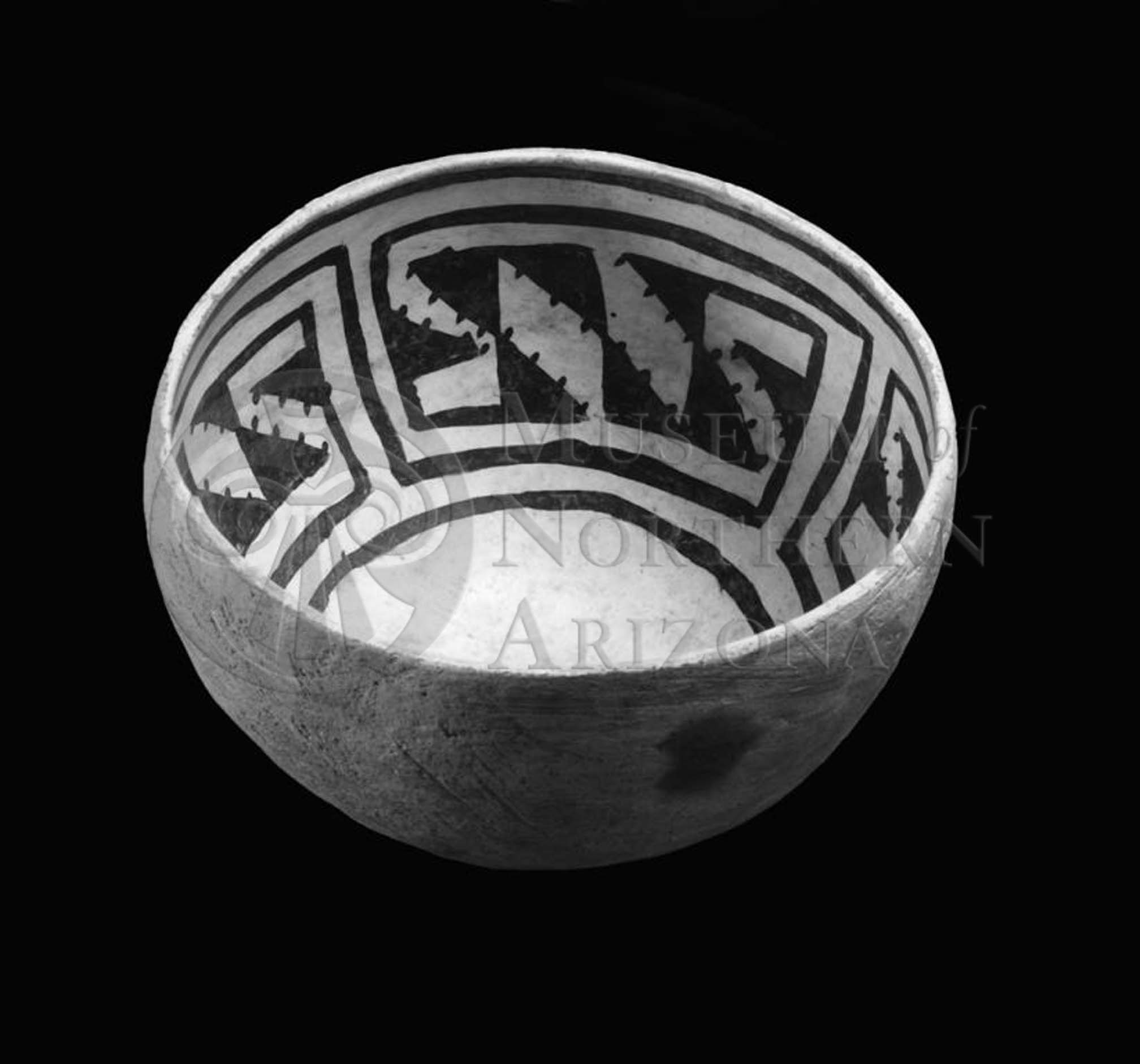
Holbrook A Black-on-white bowl from the Museum of Northern Arizona collections. Click the image to open the Holbrook A Black-on-white gallery.
Holbrook A Black-on-white is a type of Little Colorado White Ware from the Petrified Forest National Monument area and surrounding territory to the San Francisco Mountain region in Arizona.
Archaeological Culture: Ancestral Puebloan
Date Range: A.D. 1025-1140 (per Christian Downum, Northern Arizona University).
Construction: By coiling.
Firing: In a reducing atmosphere.
Core Color: Gray.
Carbon Streak: None.
Temper: Abundant opaque angular fragments; sherd, gray or tan, varying in size, but mostly fine; occasional grains of quartz sand.
Surface Finish: Interior and exterior bowl surfaces coated with moderately heavy white slip; sometimes chalky and fugitive on exterior surface; interior surface fairly well polished, sometimes coarsely crazed, scraping marks noticeable through slip on undecorated surfaces, exterior surface not smoothed, not polished, sometimes bumpy, often pitted.
Surface Color: Gray or white.
Forms: Bowls, ladles.
Vessel Thickness: 3.7 to 5.9 mm (bowls).
Decoration:
- Paint: Black to gray organic paint, soaks into the slip.
- Pigments: Carbon.
- Design: Similar to Black Mesa Black-on-white with bold and blocky geometric elements, pendant dots and wavy lined cross-hatching.
Comparisons: Black Mesa Black-on-white is similar but has abundant quartz sand temper, no conspicuous slip, and no sherd temper.
Compiled from the following sources:
Colton, Harold S., and Lyndon L. Hargrave. (1937) Handbook of Northern Arizona Pottery Wares. Museum of Northern Arizona Bulletin 11, Flagstaff, Arizona.
Hays-Gilpin, K., and Eric Van Hartesveldt. (1998) Prehistoric Ceramics of the Puerco Valley: The 1995 Chambers-Sanders Trust Lands Ceramic Conference. Museum of Northern Arizona, Flagstaff, Arizona
Compiled by:
April Peters, Northern Arizona University Anthropology Laboratories.
